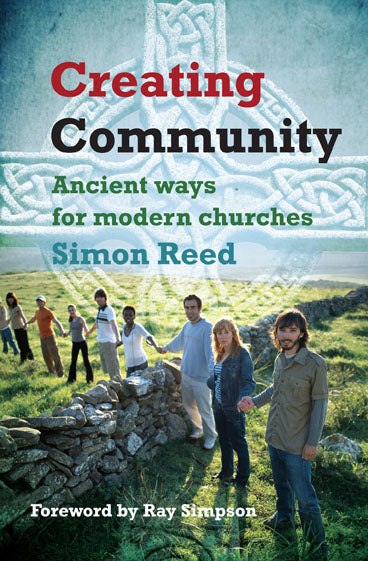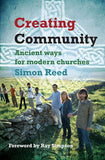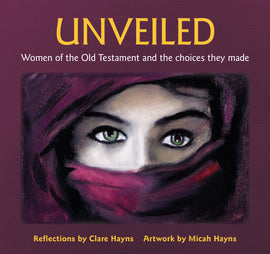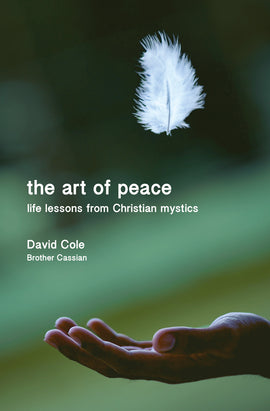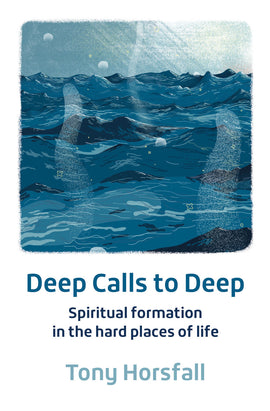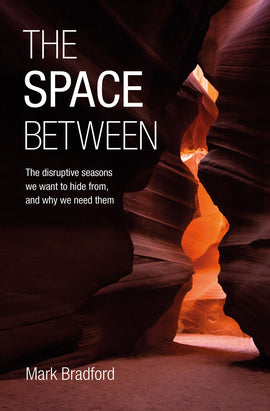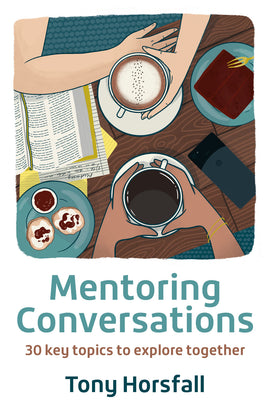Creating Community: Ancient ways for modern churches
There is much talk today of 'new ways of being church' and 'new monastic spirituality'. As Simon Reed explored the Celtic roots of the Christian faith, in community with others who drew inspiration from our spiritual ancestors in the British Isles, he came to realise that the third millennium church has much in common with the first millennium church, and more importantly, much to learn from it.
| Title | Creating Community: Ancient ways for modern churches |
| Author | Simon Reed |
| ISBN | |
| Description | There is much talk today of 'new ways of being church' and 'new monastic spirituality'. As Simon Reed explored the Celtic roots of the Christian faith, in community with others who drew inspiration from our spiritual ancestors in the British Isles, he came to realise that the third millennium church has much in common with the first millennium church, and more importantly, much to learn from it. In Creating Community, he introduces us to a new but at the same time very old way of being church which is based upon three core elements: a Way of Life, a network of Soul Friends, and a rhythm of prayer. The book shows how the rediscovery of these elements by Christians today offers a vital key that opens up an ancient way for modern churches, one which not only helps to bring believers to lasting maturity but creates genuine and much-needed community in an increasingly fragmented world. Foreword This book could be titled From the Ordinary Church: a Way of Life. Its author share the vision that the local church is the hope of the world and that each church can find its distinctive vocation. He observes that whereas many contemporary churches try to attract a crowd and then turn it into a community, the early churches in Celtic lands started as small communities and then gathered wider numbers. But can our long-established small churches become living communities? From his own experience Simon argues that they can if they adopt three practices - a way of life, a network of soul friends and a rhythm of prayer. He establishes that a way of life coheres with New Testament practice and explores how to develop these. I know Simon as a friend and colleague in The Community of Aidan and Hilda, which has Catholic, Orthodox and Evangelical members. He tells his personal story from within his own tradition. Always - and this is so refreshing - he is more concerned with the product than with the label. The book is timely for, as the author points out, the moral disintegration which underlies the unravelling of community and society could herald a new dark age. Winston Churchill, when his country had its back to the wall in World War Two, famously said 'Give us the tools and we will finish the job'. Simon gives us some tools. Let us, the readers, help to finish the job. Ray Simpson |
| Details |
|
There is much talk today of 'new ways of being church' and 'new monastic spirituality'. As Simon Reed explored the Celtic roots of the Christian faith, in community with others who drew inspiration from our spiritual ancestors in the British Isles, he came to realise that the third millennium church has much in common with the first millennium church, and more importantly, much to learn from it.
In Creating Community, he introduces us to a new but at the same time very old way of being church which is based upon three core elements: a Way of Life, a network of Soul Friends, and a rhythm of prayer. The book shows how the rediscovery of these elements by Christians today offers a vital key that opens up an ancient way for modern churches, one which not only helps to bring believers to lasting maturity but creates genuine and much-needed community in an increasingly fragmented world.
Foreword
This book could be titled From the Ordinary Church: a Way of Life. Its author share the vision that the local church is the hope of the world and that each church can find its distinctive vocation. He observes that whereas many contemporary churches try to attract a crowd and then turn it into a community, the early churches in Celtic lands started as small communities and then gathered wider numbers.
But can our long-established small churches become living communities? From his own experience Simon argues that they can if they adopt three practices - a way of life, a network of soul friends and a rhythm of prayer. He establishes that a way of life coheres with New Testament practice and explores how to develop these.
I know Simon as a friend and colleague in The Community of Aidan and Hilda, which has Catholic, Orthodox and Evangelical members. He tells his personal story from within his own tradition. Always - and this is so refreshing - he is more concerned with the product than with the label.
The book is timely for, as the author points out, the moral disintegration which underlies the unravelling of community and society could herald a new dark age. Winston Churchill, when his country had its back to the wall in World War Two, famously said 'Give us the tools and we will finish the job'. Simon gives us some tools. Let us, the readers, help to finish the job.
Ray Simpson
Holy Island of Lindisfarne | www.raysimpson.org
Let me pay tribute to Simon's Creating Community. I think a great deal of contemporary Celtic Christian interest has reduced Celtic Christianity to an individual interest and those individuals come together to form communities, but that is a long way from what we might think about authentic Celtic community. What attracted me to Simon's book (and its one of a small number I point all Celtic mission students to) is the attempt to make Celtic Christian insights work for an existing community.
Rev Dr Stephen Skuce, Research Programme Leader (Director of Scholarship, Research and Innovation for the British Methodist Church), Cliff College
What the world (and the church) needs now more than anything else is a sense of community. Starting with the author's excellent summary of Aladair Mcintyre's After Virtue at the end of this excellent guidebook on building purposeful Christian community this is a 'How To' book which has the potential to transform the small village congregation, the burgeoning suburban church and the tentative Fresh Expression.
Drawing on his experience as a church minister and his membership of the Community of Aidan and Hilda, Simon lays out the building blocks which can transform any gathering of Christians into the world changing community Christ means it to be.And simple steps they are as well. A shared Way of Life (sometimes called a Rule), A commitment to journeying with a Soul Friend (sometimes called a Spiritual Director), and a decision to have a set Rhythm of Prayer (sometimes called keeping the Divine Office).Too often the pattern for Christian community, tried and tested and proven effective down the ages, has been seen to be the preserve of the professional monk or nun instead of the inheritance of every Christian. So there is a deliberate down playing of language, without a diminishing of commitment.This book, taken seriously - especially by the leadership of a church - will transform relationships and bring the gospel to life amongst the congregation who chooses to take its programme seriously.It is worthwhile to summarise the consequence of putting these three principles into practice - aims to which many churches aspire:- Community, not just congregation
- Rhythms of prayer, not just places of worship
- Relationships, not just activity
- Spiritual life, not just structural maintenance
- Organism, not just organisation
- Connection, not isolation
Review by Revd Andrew Dotchin
From Country Way - October to December 2013
That looks like my cup of tea, I said seeing this book on a colleague's desk. Which proves one shouldn't judge a book by its cover or title. I assumed this would be about the church engaging with the local community. Instead it's about how the church builds itself into a community. John Pritchard in Living Faithfully suggests that the church is too often concerned with itself, its structure and inward life, and he calls the church to make connections with neighbourhoods. Misjudging the intention of Creating Community I became disappointed, for it is about something else.
Simon Reed provides an apologia for a particular view of the church as a community, based on a Celtic way of the Community of Aidan and Hilda. He introduces three core elements of being church: a way of life; a network of soul friendship; and a rhythm of prayer. He writes in a chatty style. I read it mostly on a series of train journeys and felt his companionship through his thoughts and ideas. He makes short shrift of other ways of being church that he disagrees with or where his experiences are negative. He is best describing and working through the core elements and there are some helpful passages particularly concerning prayer.
I found his notion of praying through the day retrospectively a helpful corrective to constantly looking ahead to the next diary entries. Ideally a second volume would move from focusing on the church's internal community to how the core elements help build an external community that grows the kingdom in the world.
Reviewed by Glyn Evans
From The Good Bookstall - April 2013
This book works on so many levels! In fact I almost want to just say this book works - read it, find that out for yourself. But then that wouldn't be a very helpful review would it? Whatever words I say here probably won't do it justice - just so we are clear...
This is a foundational guide to doing church, to becoming community and more importantly to living community - something it could perhaps be said we have lost a little. This book guides the reader back onto the track of experiential living, where everything is community rooted and where everything is in its own way an act of prayer, where we live not only our lives but our faith together - even when we are apart!
It's a guide book for individuals and a study book for churches and real communities - it reflects on ancient ways, yes, but it pulls in the very real and modern life we live using solid examples from the Community of Aidan & Hilda, and also reflection from other communities including the Northumbria Community, L'Arche, The Franciscan Third Order and others - demonstrating the pull towards community, the need for it and the lessons we can learn from it.
So ok perhaps I'm a tad biased, I'm a member of a new, small but real, fresh expressions community here in Lincoln called Luminous... but I still think that this book works and will talk to many, even those that aren't community-centric already because the heart of our gospel, our faith, is community and this book helps lead us into that journey and insight.
Reviewed by Melanie Carroll
Waves of enthusiasm for all things 'Celtic' have swept across Irish and British shores at various points in modern history. It seems this ancient tide is here again. In Creating Community, London vicar Simon Reed cracks open this old indigenous stream of spirituality. It was for his own congregations - the Church of the Ascension and St Mary's Church in Ealing - that he needed to find a pathway to growth. He found it in the early church of these islands. 'One feature of the church in Britain in the fourth to eighth centuries was that it held together many of the strands of Christianity which today have become separated,' he writes. 'The Celtic church had an Evangelical emphasis upon the Scriptures and upon mission, a Catholic sense of the importance of incarnation and sacrament, a Pentecostal - charismatic experience of the work of the Holy Spirit, and an Orthodox vision of God as Trinity.' As a 'guardian' of a new monastic movement, the Community of Aidan and Hilda, the author encourages us to learn from former ways of 'doing church'. These are mainly: a rule of life, a way of connecting with God and others; a rhythm of prayer, simple patterns of worship, prayer and Bible reading; and soul friendship (anam cara), a process of spiritual mentoring. SIMON SAYS, 'BE CELTIC'! W JULY - SEP 2013 VOX 43 Simon's explanation of a 'rule of life' is one of the clearest and most concise I have seen. He puts it into three basic principles of simplicity, purity and obedience, to develop 'a disciplined spirituality', as he puts it. I'm inspired by soul friendship but also hesitant because of its darker modern counterpart, the heavy shepherding movement. Still, we should be open to the healthier notion of soul friends, if we're to be fully human. Linked to this, the author shares helpful and practical pointers about prayer and reflection as a community - including an astonishing experience of welcoming a Muslim into his church who wanted sacred space. Throughout the book, Simon uses the phrase 'ordinary Christians', drawing everyone into this journey. He concludes that a new monasticism with old roots will be the salvation of our broken society. Simon shows the message of Celtic Christianity has outlasted the trendy years. Practical and profound, Creating Community is recommended reading for church leaders everywhere.
Reviewed by Clive Price from Vox Magazine

